Bicameral Mentality: Hallucinations in Adults
Hypothesis Two: Bicameral Mentality – Subtopic: Hallucinations in Adults
In his theory, Julian Jaynes describes the role hallucinations played in an earlier mentality, prior to the development of subjective consciousness. He predicted that hallucinations were more common in the normal population than was known at the time, and this has been confirmed in literally hundreds of studies over the past three decades. Below is a small sample of research supporting this aspect of Jaynes’s theory.
Articles
- Examining the Continuum Model of Auditory Hallucinations: A Review of Cognitive MechanismsBadcock, Johanna C. and Kenneth Hugdahl, Hallucinations, 2012, Part 3, 317–328.
- Visual Hallucinations and Sensory Delusions in the ElderlyBerrios, G. E., and P. Brook, British Journal of Psychiatry, June 1984, 144, 662–664.
- Visions For All: People who Report Vivid Religious Experiences May Hold Clues to Nonpsychotic HallucinationsBower, Bruce, Science News, April 2012, 181, 7, 22–25.
- Hallucinatory Experiences in Extreme-Altitude ClimbersBrugger, Peter, Marianne Regard, Theodor Landis, and Oswald Oelz, Neuropsychiatry, Neuropsychology, & Behavioral Neurology, January 1999, 12, 1, 67–71.
- Visual and Auditory Hallucinations in A Psychologically Normal WomanChedru, F., F. Feldman, A. Ameri, J. Sales, and M. Roth, Lancet, September 28, 1996, 348, 9031, 896.
- The Origins of Voices: Links Between Life History and Voice Hearing in a Survey of 100 CasesCorstens, Dirk and Eleanor Longden, Psychosis: Psychological, Social and Integrative Approaches, Special Issue: Voices in a Positive Light, 2013, 5, 3.
- Auditory and Visual Hallucinations in University StudentsFeelgood, S. R. and A. J. Rantzen, Personality and Individual Differences, 1994, 17, 2, 293–296.
- Hallucinatory Experiences at High AltitudeGarrido, Eduardo, Casimiro Javierre, Josep L. Ventura, and Ramon Segura, Neuropsychiatry, Neuropsychology, & Behavioral Neurology, April 2000, 13, 2, 148–148.
- Auditory Hallucinations Following Near-Death ExperiencesGreyson, B. and M.B. Liester, Journal of Humanistic Psychology, 2004, 44, 320–336.
- Hallucinations Following the Loss of a Spouse: Common and Normal Events Among the ElderlyGrimby, Agneta, Journal of Clinical Geropsychology, 1998, 4, 1, 65–74.
- Hallucinatory Experiences in Non-Clinical PopulationsHill, Katy and David E.J. Linden, in Renaud Jardri, et al (eds.), The Neuroscience of Hallucinations (Springer, 2013, 21–41).
- A Study of Manifestations of Hallucinations in a Non-Psychiatric Population of Caribbean DescentIzquierdo, A. M., Dissertation Abstracts International: Section B: The Sciences & Engineering, December 2000, 61, 5–B, 2764.
- Commentary Hallucination in the Elderly: Three Case ReportsKobayashi, T., S. Kato, T. Osawa, and K. Shioda, Psychogeriatrics, September 2004, 4, 3, 96–101.
- The Characteristic Features of Auditory Verbal Hallucinations in Clinical and Nonclinical GroupsLarøi, Frank, Iris E. Sommer, Jan Dirk Blom, Charles Fernyhough, Dominic H. ffytche, Kenneth Hugdahl, Louise C. Johns, Simon McCarthy-Jones, Antonio Preti, Andrea Raballo, Christina W. Slotema, Massoud Stephane, and Flavie Waters, Schizophrenia Bulletin, 2012, 38, 4, 724-33
- A Study of Hallucinations in Normal SubjectsMcCreery, C. and G. Claridge, Personality and Individual Differences, 1996, 21, 5, 739–747.
- Psychotic Symptoms in an Urban General Medicine PracticeOlfson, M., R. Lewis-Fernandez, M. Weissman, A. Feder, M. Gamerof, D. Pilowsky, and M. Fuentes, American Journal of Psychiatry, August 2002, 159, 1412–1419.
- Hallucinations in A Normal Population: Imagery and Personality InfluencesRodrigo, A.M.L., M.M.P. Pineiro, P.C.M. Suarez, M.I. Caro, and S.L. Giraldez, Psychology in Spain, 1997, 1, 1, 10–16.
- Coping with Hearing Voices: An Emancipatory ApproachRomme, M.A.J., A. Honig, E.O. Noorthoorn, and A.D.M.A.C. Escher, British Journal of Psychiatry, 1992, 161, 99–103.
Books
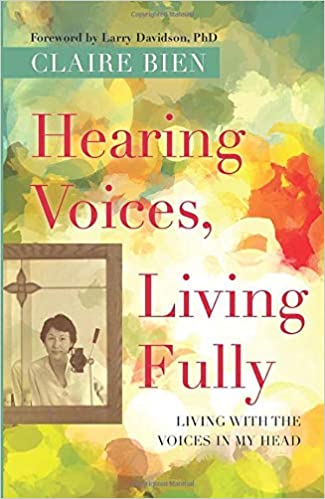
|
Hearing Voices, Living Fully |

|
Hallucinations: The Rational History of Apparitions, Visions, Dreams, Ecstasy, Magnetism, and Somnambulism |

|
The Origin and Mechanisms of Hallucinations |
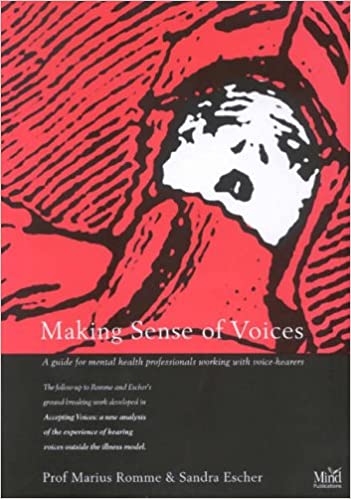
|
Making Sense of Voices: A Guide for Mental Health Professionals Working with Voice-Hearers |

|
Living with Voices: 50 Stories of Recovery |
|
Sensory Deception: A Scientific Analysis of Hallucination |
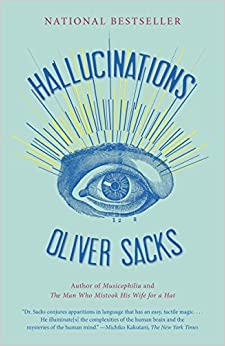
|
Hallucinations |

|
Muses, Madmen, and Prophets: Rethinking the History, Science, and Meaning of Auditory Hallucination |
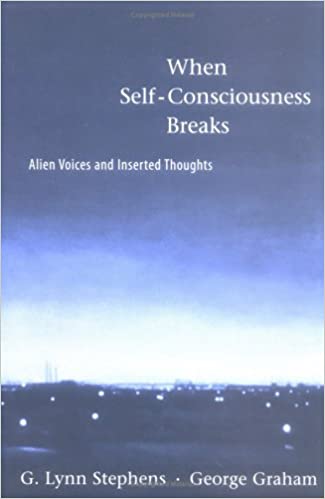
|
When Self-Consciousness Breaks: Alien Voices and Inserted Thoughts |
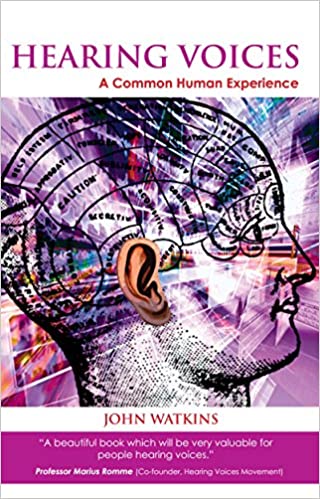
|
Hearing Voices: A Common Human Experience |

|
Of Two Minds: Poets Who Hear Voices |
|
Hallucinations |